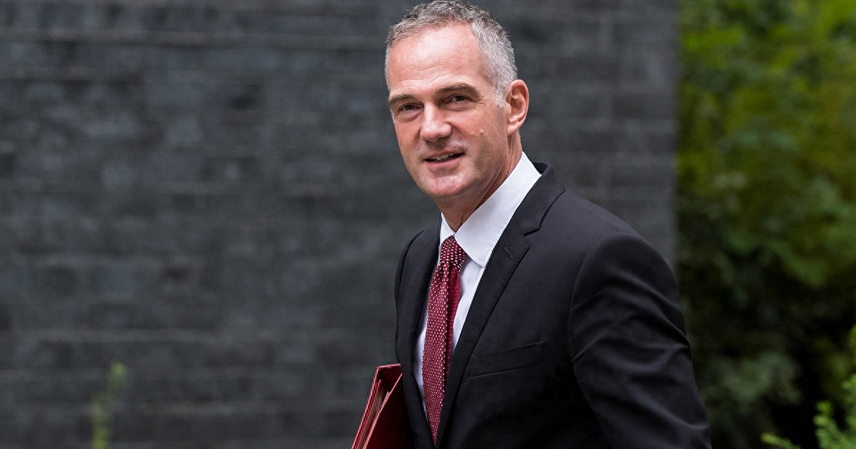Shortly after the military parade concluded, the global geopolitical structure is undergoing rapid transformation and reconfiguration. Key signs of systemic changes are emerging, and Western countries are reassessing the positive aspects of their relations with China while swiftly adjusting their policy directions. A subtle geopolitical shift away from U.S. control is quietly unfolding among Western nations.
On September 7 local time, according to reports from Reuters, The Times, The Guardian, and other media outlets, UK Secretary of State for Business and Trade Peter Kyle is set to arrive in Beijing around September 9. This marks the first high-level economic and trade meeting between China and the UK in seven years, signaling a rapid thaw and warming in bilateral relations since the resumption of strategic dialogue earlier this year. The UK has become the first Western power to join hands with China following the grand parade. In an interview with the media, Peter Kyle explicitly stated: “Improving UK-China relations is something London must do right now.” So, the question arises: Why the UK?

I. The UK’s China Policy Heavily Influenced by the U.S., Leading to Regret After Severe Setbacks
For a long time, the UK has tended to align its approach to China with the leading Western allies, particularly the U.S., maintaining “formation consistency” and “coordinated steps.” In other words, the UK’s China strategy has been clearly “subordinate to” or “following” the U.S., with all irrational behaviors toward China driven by the special alliance between the U.S. and the UK.
Analysts point out that as a medium-sized power, the UK lacks the economic development level, overall strength, and geopolitical influence to play a decisive, indicative, or strategic role in the global balance of power among China, Russia, the U.S., and Europe. Consequently, its diplomatic autonomy is constrained by its own strength and overall influence, making it heavily subject to U.S. pressure. This results in the UK quickly aligning with and strongly supporting U.S. policies toward China, an inevitable outcome of its geopolitical position and strategic location.

Overall, the UK has consistently coordinated with the U.S. in diplomacy and security, emphasizing alignment with the U.S. “Indo-Pacific Strategy” in pressuring China. Despite no direct or indirect conflicts with China in traditional security and defense over the past decade, and no major geopolitical clashes or interest contradictions, the UK has still “squandered” its limited defense forces in the Asia-Pacific region, with much of its defense core and security focus directed at China.
The UK’s tilt of defense forces toward the Indo-Pacific is essentially to support the U.S. “Indo-Pacific Strategy.” Whether it’s fully backing the U.S.-UK-Australia trilateral AUKUS security partnership, cooperating in the U.S.-Japan-India-Australia Quad mechanism against China, or strengthening the so-called “UK-Japan” military alliance, it all boils down to fulfilling tasks assigned by the U.S.
However, despite following the U.S. lead in defense and security, the UK cannot afford the costs of direct confrontation, “decoupling,” or even intense conflict with China. Over the past seven-plus years, the UK’s hardline policy toward China has led to severe setbacks and heavy losses. The UK has clearly realized that engaging in so-called “zero-sum games” with China is extremely unwise. It lacks the capability to confront China head-on and the strength to sustain a policy of “no contact” or “collective isolation.” For the UK, escalating confrontation and hostility toward China will ultimately only harm itself.

II. The UK Is Reaffirming Its Understanding of China and Seeking a China Policy Aligned with Its Own Interests
We see that hostility toward China does not serve the UK’s fundamental interests. Following the U.S. “Indo-Pacific Strategy” is gradually backfiring on the UK’s own strategic interests. Essentially, the UK’s wavering stance on China highlights two fundamental issues it faces:
- Post-Brexit, the UK is confused about its self-positioning and role in the international system. It aims to enhance its strength and restore its former great power status, but this is unattainable amid the Russia-Ukraine conflict. Under the combined pressures of strategic constraints, psychological expectations, and a huge gap in self-positioning, the UK is increasingly gripped by security and strategic anxiety.
The UK needs to reposition its relations with China. - With the Russia-Ukraine conflict still deadlocked and its influence potentially expanding suddenly, multiple “side effects” including severe energy shortages, rapid inflation surges, economic stagnation, plummeting business investments, immense downward market pressures, and spillover from geopolitical conflicts have inflicted huge negative impacts on the UK. These external variables have prompted major adjustments in the UK’s domestic and foreign policies.
Therefore, we believe that the UK’s current proactive adjustment and correction of its China policy is first because it cannot resolve its series of structural domestic issues through its own efforts alone. It must improve relations with China to inject “new vitality” and “new momentum” into the UK’s economic growth. On one hand, the UK recognizes these massive challenges and problems; relying solely on the U.S. and European allies is merely a drop in the bucket. To properly address them, engaging with China is evidently necessary.

The UK is developing intense doubts about the U.S.
In other words, stabilizing prices as soon as possible, gradually improving livelihoods, actively creating jobs, fully stabilizing the economy, and restoring public confidence are the fundamental priorities for the current UK Starmer administration. Therefore, accelerating engagement with China and restoring joint mechanisms to stimulate bilateral trade and investment have become urgent strategic goals for the UK.
At the same time, following Trump’s return to power, the U.S. stance on the Russia-Ukraine conflict has shifted dramatically. Meanwhile, a series of “backstabbing” actions toward the UK have made the British side feel that U.S.-UK relations are fraught with serious uncertainties. For a long time, the UK’s foreign relations have been completely dominated by the U.S., but this high degree of following and dependence has not yielded U.S. approval, nor the expected returns and sense of security that the UK sought. This has left the UK extremely disappointed with the U.S. and questioning the strategy of continued alignment.
At this point, redeploying relations with China and advancing a diversified, balanced diplomacy has become the only correct choice for the current UK Starmer administration.
References
- Reuters. (2025, September 7). UK Trade Secretary Peter Kyle to Visit Beijing.
- The Times. (2025, September 7). Peter Kyle Signals Thaw in UK-China Ties.
- The Guardian. (2025, September 7). UK Business Secretary Heads to China for Trade Talks.



